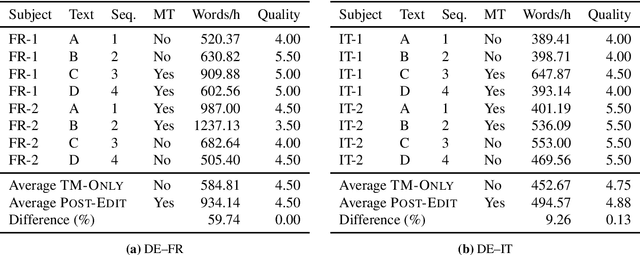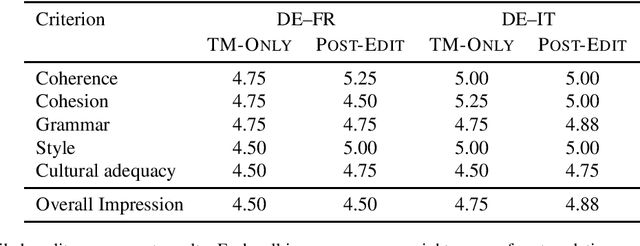Post-editing Productivity with Neural Machine Translation: An Empirical Assessment of Speed and Quality in the Banking and Finance Domain
Paper and Code
Jun 04, 2019


Neural machine translation (NMT) has set new quality standards in automatic translation, yet its effect on post-editing productivity is still pending thorough investigation. We empirically test how the inclusion of NMT, in addition to domain-specific translation memories and termbases, impacts speed and quality in professional translation of financial texts. We find that even with language pairs that have received little attention in research settings and small amounts of in-domain data for system adaptation, NMT post-editing allows for substantial time savings and leads to equal or slightly better quality.
* MT Summit 2019 (Research Track)
 Add to Chrome
Add to Chrome Add to Firefox
Add to Firefox Add to Edge
Add to Edge